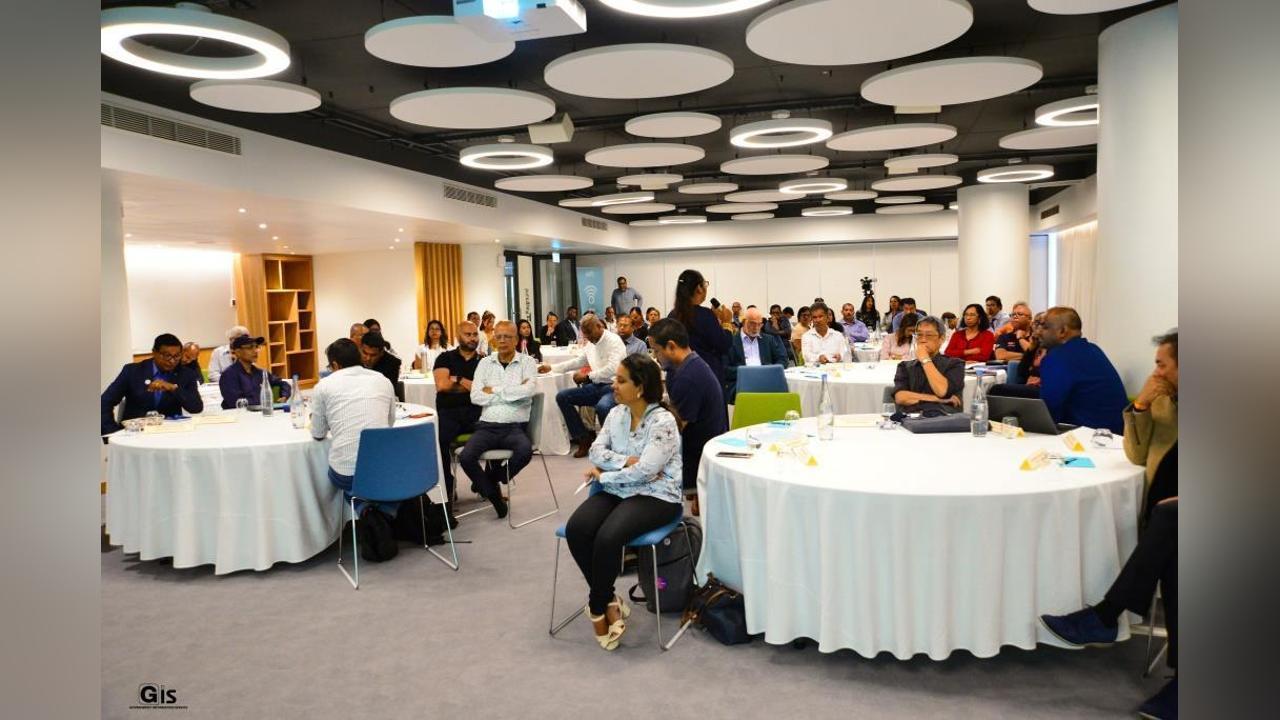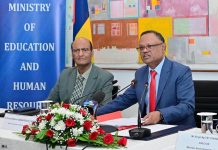Africa-Press – Mauritius. A three-day National Consultative workshop on Drug Prevention, organised by the National Drug Secretariat under the aegis of the Prime Minister’s Office (PMO), opened, this morning, at Caudan Arts Centre in Port Louis. Representatives from different Ministries and departments, NGOs, civil society and faith-based organisations are participating.
The objectives of the workshop are to take stock of the drug situation in the country; take cognizance of the drug prevention programmes in place; identify gaps and challenges of the drug prevention programmes; propose and adopt appropriate evidence-based prevention programmes for different target groups; work out a National Register of Resource persons to implement drug prevention programmes; and propose a National Strategy for an effective prevention programme.
During the three days, several themes will be discussed, namely: Overview of the drug situation; overview of the synthetic drug phenomenon; status of funding of the Drug Prevention Programme; Drug Prevention Programme in educational institutions and closed institutions; and the way forward.
Present at the opening, the Deputy Permanent Secretary of the PMO, Ms Mary Ching Kee Young, dwelt on the major drug abuse effects on the individual, the family and the society at large.
She indicated that according to the United Nations Office on Drugs and Crime, the number of people around the world who have consumed drugs at least once in 2021 is estimated to be around 300 million, which represents an increase of 20% compared to 2010.
Speaking about the drug situation in Mauritius, she said that the country is not sparred and reiterated Government’s determination to combat the drug scourge which is mainly affecting the youth. She observed that a structured and well-defined plan is needed as well as the involvement of all stakeholders.
The Deputy Permanent Secretary recalled that Government has developed various policies to address the issue, the most recent being the National Drug Control Masterplan 2019-2023, which promotes collaboration among law enforcement agencies. The Masterplan, she highlighted, proffers an integrated approach that addresses a range of drug-related issues.
These include illicit drug supply and drug demand reduction, harm reduction as well as coordination mechanism, implementation framework, monitoring and evaluation and strategic information based on International Drug Control Conventions, she added.
Overview of drug situation in Mauritius In a presentation, the Coordinator of the National Drug Secretariat, Mr Sewraz Corceal, indicated that in 2021, with 4 826 reported drug offences, the drug offence rate stood at 3.8 per 1 000 inhabitants.
In 2021, out of the 4 826 drug offences reported, 45.9% were cannabis-related offences, followed by 26.3% for heroin-related offences. 22.0% of drug offences were attributed to synthetic cannabinoids. Other drugs, comprising mainly methadone and hashish, stood at 3.5%.
From 2018 to 2020, possession of drugs has been the most popular nature of drug offence reported, with 71.8% in 2018, 72.1% in 2019 and 59.7% in 2020, as respective annual proportion of all drug offences.
In 2021, possession of drugs accounted for 73.8% of total drug offences reported. In 2021, the Anti-Drug and Smuggling Unit (ADSU) of the Mauritius Police Force has reported 3 623 drug offences cases, out of which, there were 3 284 arrests.
For the last three years from 2019 to 2021, the average annual number of drug offence cases reported by ADSU was 3 813 per year and the average annual number of drug-related arrests was 3 245.
For the last nine years 2013-2021, the reported street value of drugs seized by the ADSU amounted to Rs 13.7 billion, out of which, an estimated street value of Rs 10.9 billion were associated to seizures of heroin.
As regards new cases seeking rehabilitative treatment at NGOs, for the last three years 2019-2021, the average yearly new cases at NGO centres amounted to 2,121 cases per year.
In 2021, there were 2 375 new cases. In 2021, 80% of new patients having sought rehabilitative services at NGOs were in the age group of 18 to 39 years. In 2021, there were 927 admissions in public health institutions due to drug use problems, out of which, 63 admissions (6.8%) were female cases.
For More News And Analysis About Mauritius Follow Africa-Press







